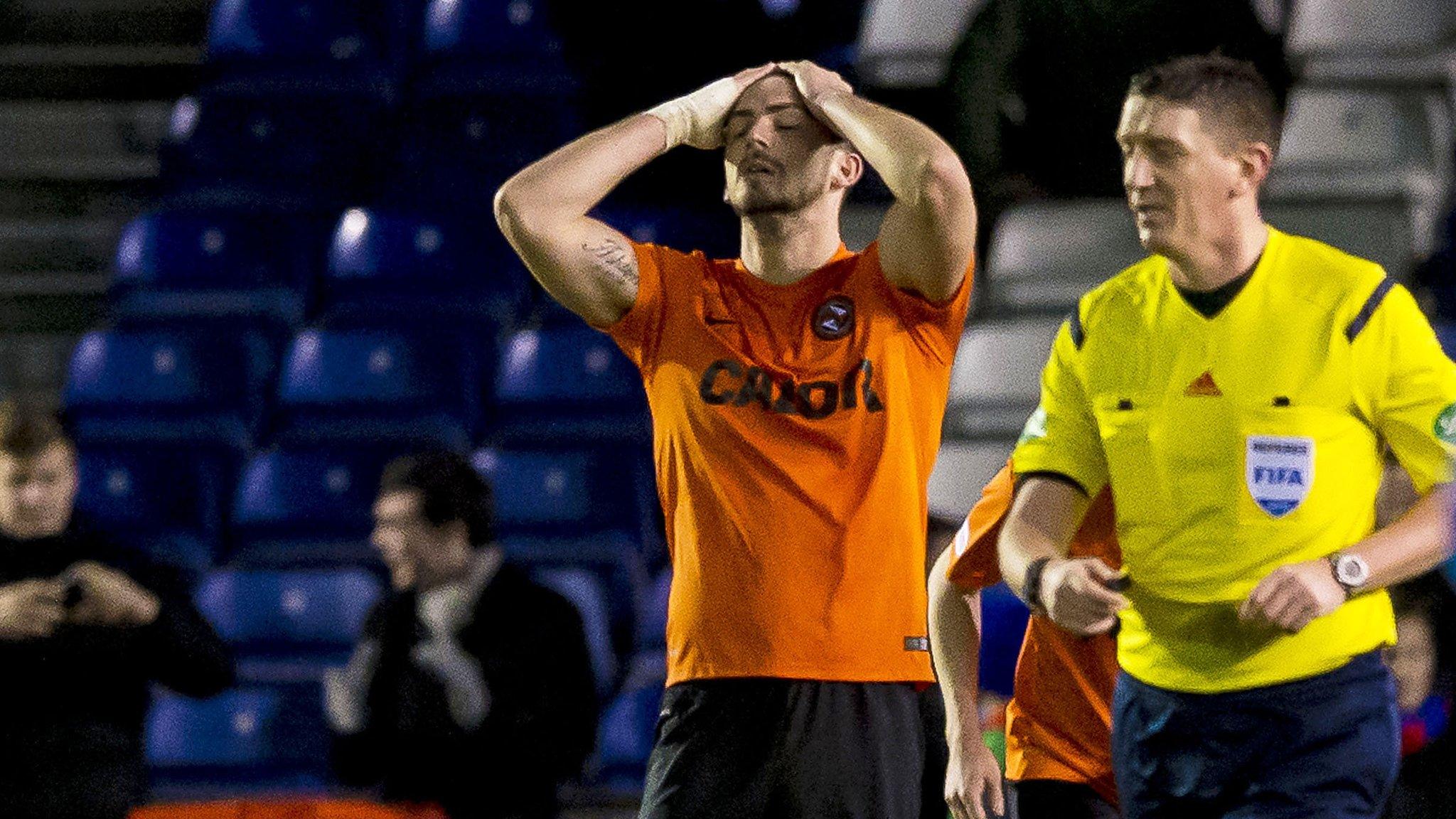Momentum, not moments, will define season for Celtic & Rangers
- Published

Celtic lost at home to Motherwell on Saturday
Ronny Deila will know the routine by now. A defeat brings scrutiny and speculation about his work as Celtic manager and the question is raised again about his future prospects.
He is entitled to feel a little irked, since his domestic record is impressive. Celtic won the Premiership and League Cup on his debut campaign, as well as reaching the Scottish Cup semi-final.
This term the team has lost only twice in the league and progressed through two rounds of their League Cup title defence. A defeat to Motherwell then, even at home, does not need to be viewed as critical.
European results have continued to be an admonishment this season, though, and that is where Deila is vulnerable to a period of reflection by the Celtic board.
Perspective tends to be the first casualty of fans' reactions to a setback but there does not seem to be any clarity of voice amongst Celtic supporters against the manager.
Deila's progress inevitably has to be split into two areas. In Scotland, the team generally continues to be strong and effective. There is a huge advantage in resources, but Saturday's 2-1 defeat to Motherwell is, for now, a solitary event and not part of a wider trend.
Celtic have played 18 league games, winning 13, drawing three and losing two; at the same stage last season they had won 12, drawn three and lost three.
They have scored more goals in this campaign (45 to 34) and conceded more (14 to 12). From 27 December last year to the end of the season, Celtic played 27 domestic fixtures and lost only two of them, winning 21. They are capable of repeating that kind of feat.
There are other factors this season, notably Aberdeen being more consistent and so threatening, and the addition of Hearts to the league bringing a further level of intrigue, but mostly the sense is of Celtic remaining comfortable in domestic games.
Those who doubt Deila's credentials will point out that the least that is expected of Celtic is to win the league, so the manager is not excelling.
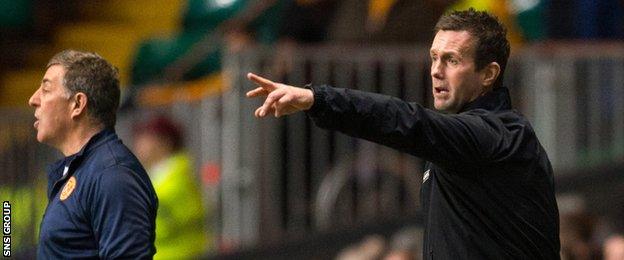
Deila (right) has placed more emphasis on recruiting young Scottish players
The Norwegian was certainly brought to the club with the remit to develop players and build a team that is greater than the sum of its parts. There is not enough evidence in his favour to that extent, even if striker Leigh Griffiths has improved substantially under Deila's management.
This is the context in which Deila has to be judged. Celtic's strategy is a sound one: buy young players, with potential to develop and so realise transfer value profit.
A scientific approach can be applied to elements of recruitment and development, but there is also a chemistry to building a team, particularly when young, inexperienced players are prone to bouts of uncertainty and waywardness.
Celtic's defence has been too fragile in Europe and, when resources are taken into account, the defeats to Malmo and Molde reflect badly on the manager. His team was well enough equipped to do better in those games.
Fans will debate the manager's merits endlessly, but none would be surprised if the team performed with authority, power and decisiveness in their next game, at Tynecastle on 27 December.
Will it be enough for Deila to retain the title? That will not be what the Celtic board judge, since a third successive failure to reach the Champions League group stages would surely lead to his departure.
Can the club afford to take that gamble? The same might be said about the next two rounds of recruitment, in January and the summer, since too much potential has been signed - with the likes of Dedryck Boyata, Scott Allan, Nadir Ciftci and, when he arrives, Ryan Christie taking time to develop. Others, like Gary Mackay-Steven, have failed to rise to the challenge of playing consistently well for Celtic.
Deila is not a lost cause but the board will continue to assess his work because he has not yet been wholly persuasive.
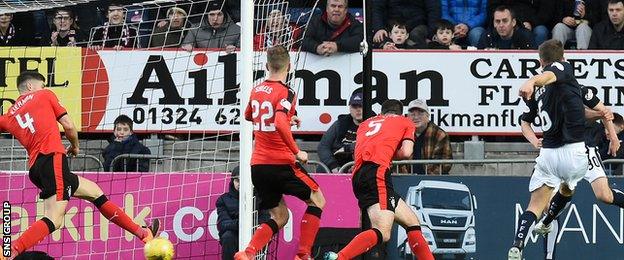
Rangers were beaten 2-1 by Falkirk on Saturday
Mark Warburton has not been exposed to the same level of pressure at Rangers but there are similarities nonetheless.
His team is strong going forward and employs far greater resources than all of its Championship rivals. It is also defensively vulnerable at times and the balance between style and substance is not always there.
Again, perspective is important. Warburton has built a team capable of swift, incisive attacking football in a short period of time. Most of his signings have been effective and the quality of the football has, on occasion, been impressive.
Opponents are wiser to Rangers' approach now, though, and that has coincided with a period of bluntness, when possession has not always delivered goals.
From being eight points clear after 11 straight wins, Rangers have dropped points in four of their last six league outings and are now level at the top with Hibernian, who visit Ibrox next week.
The team would benefit from January signings, particularly in midfield and attack, but the squad is also worth more than any of its rivals, so ought already to be capable of holding off Hibs and Falkirk.
There are moments of success and failure in every campaign, so assessments need to be made on the basis of a body of work, not individual events.
- Published21 December 2015
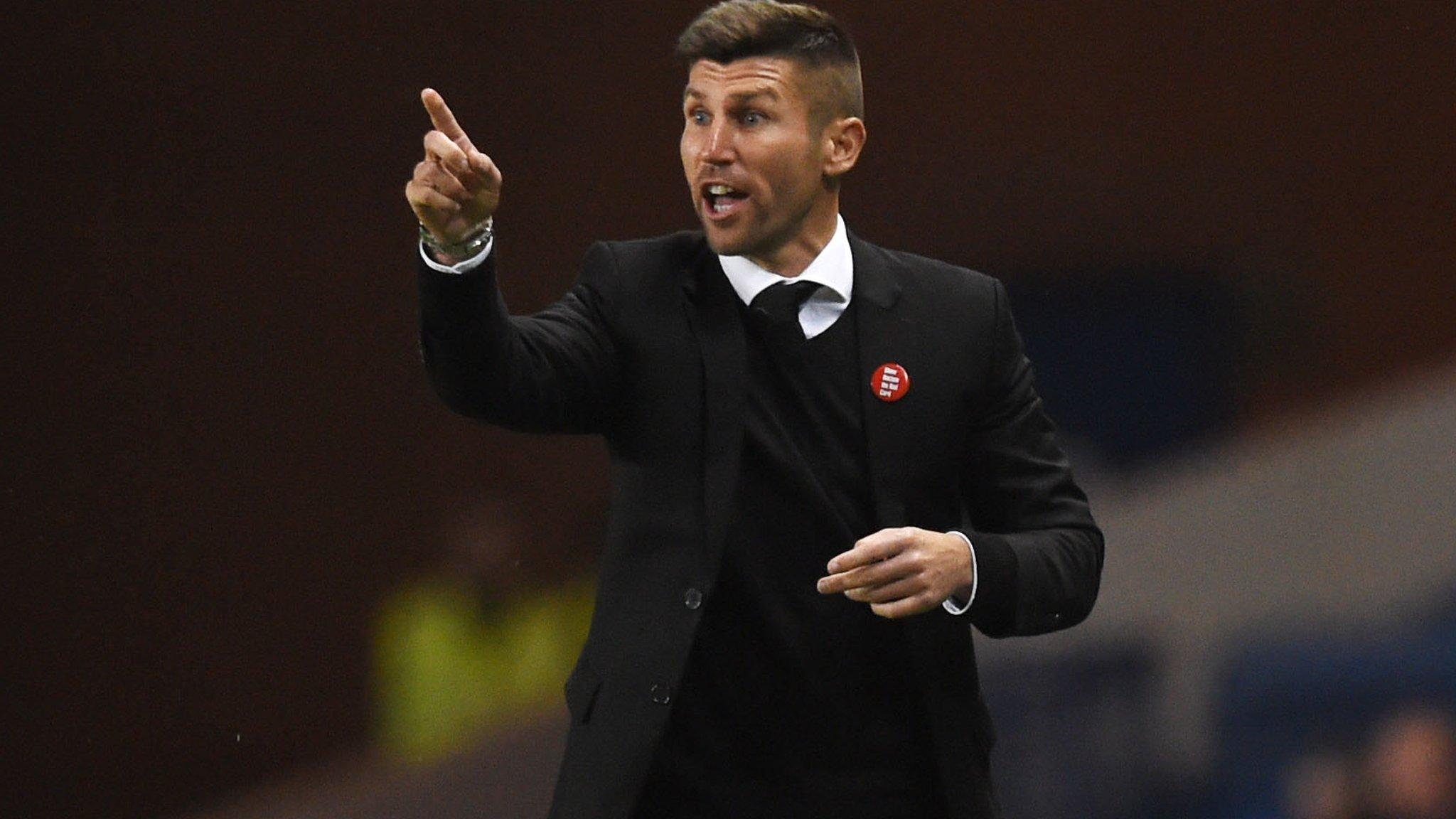
- Published21 December 2015
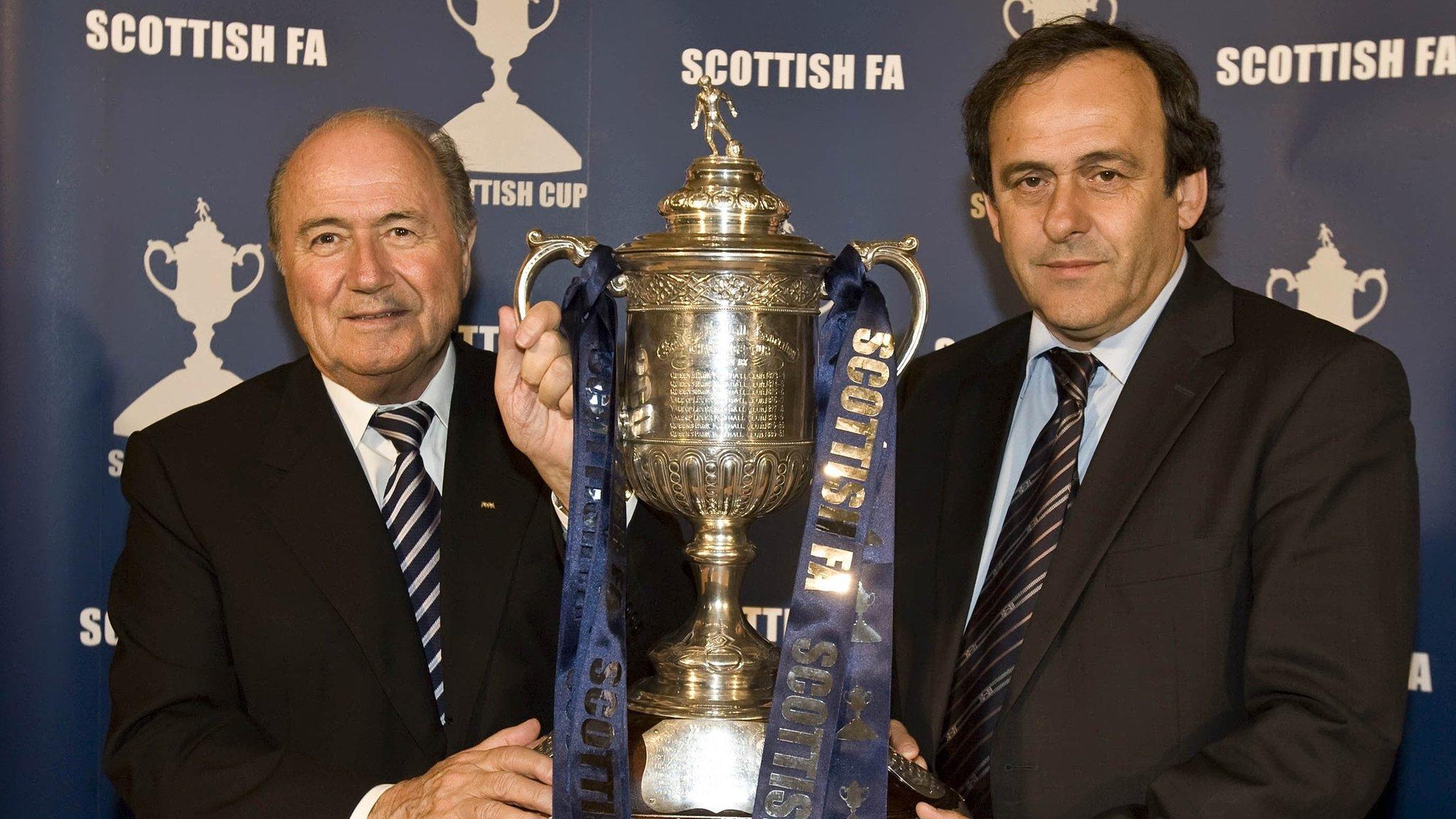
- Published21 December 2015
